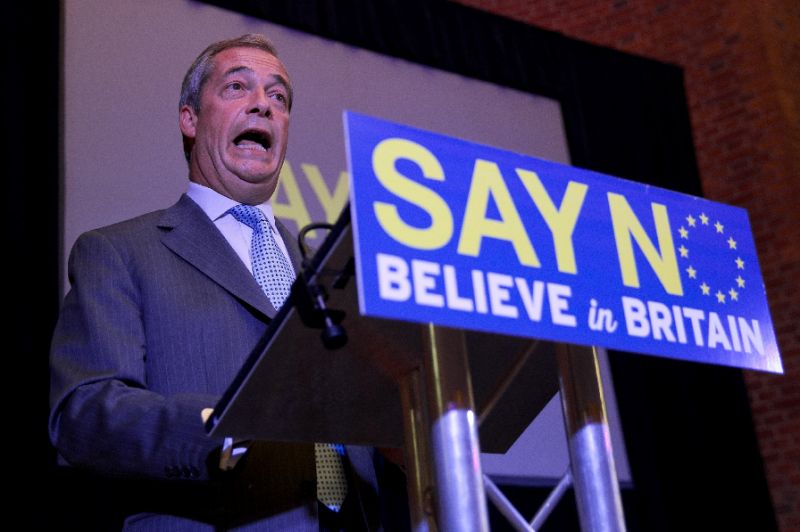Not being intimately familiar with the nuances of the U.K.’s politics and culture, I’m wary of assigning support for Brexit to ugly nativist tendencies, but it does seem a self-harming act provoked by the growing pains of globalism. It may not be as dumb a move as a President Trump, for instance, but some of the same forces are at play, particularly when it comes to the pro-Brexit, anti-immigration UKIP party.
It’s not shocking that Britain and the U.S. are trying to dodge the arrival of a new day and greater competition, a time when empires can’t merely strike back at will. We’re richer now, we have better things, but the distribution is very uneven and we feel poor inside. For some, maybe a surprising number, blame must be assigned to the “others.” As Randy Newman sang: “The end of an empire is messy at best.”
From Andrew Brown’s excellent Boston Globe essay about Brexit, which the great Browser pointed me to:
In 1945, things were dreadful, but everyone knew their role and knew what their country should do. Now things are very much better, but no one knows where they belong. The post-war consensus and much of the optimism lasted until about 1973 but collapsed altogether under Margaret Thatcher. In a sense, this campaign is the last outworking of her legacy. Both sides of the argument are the children of Thatcher, who opposed the European Union rhetorically and emotionally but did as much as any political leader to knit us into the single market.
The Remainers are largely those who profited from her revolution: the rich, the skilled, and the educated, especially those who live in London and the South East portion of England. At the same time, they tend to be the people who resisted and were repelled by her message and her instinctive social nostalgia. They are, in a word, Blairites: He largely continued her policies but switched the rhetoric 180 degrees to welcome a future as quite glorious — and imaginary — as Thatcher’s vision of the past had been.
Under both Tony Blair and Thatcher, and under their successors, the rising prosperity of London and the South East has been accompanied by an astonishing loss of jobs, hope, and self-confidence in other parts of the country. There, in the traditional heartland of England, is where the Brexit movement draws its emotional strength. The Leavers are mostly those who lost out from what Mrs Thatcher did but drew nourishment by what she said. So they felt doubly betrayed in the post-Blair era, when the economics of the new order went on hurting them, and the rhetoric turned against them, too.
But the Leavers are not a homogenous group. Take away their English nationalism, and they fall into two profoundly opposed groups. By far the largest are the foot soldiers, small-c conservative and genuinely hostile to immigrants of every sort. (More than half the immigrants in this country are from outside the European Union.) The ordinary Leavers are found almost everywhere outside London, in all the places where globalization has devastated the economy and where many of the jobs that are left have gone to foreigners.
They are nourished by the extraordinary and unremitting hostility to “Migrants” in some parts of the press.•
Tags: Andrew Brown

